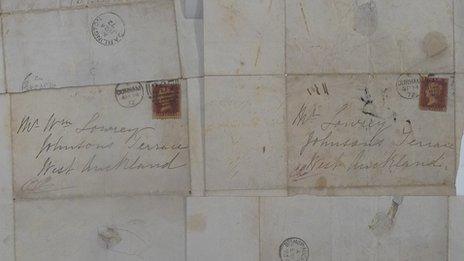Victorian serial killer Mary Ann Cotton's possessions on display
- Published
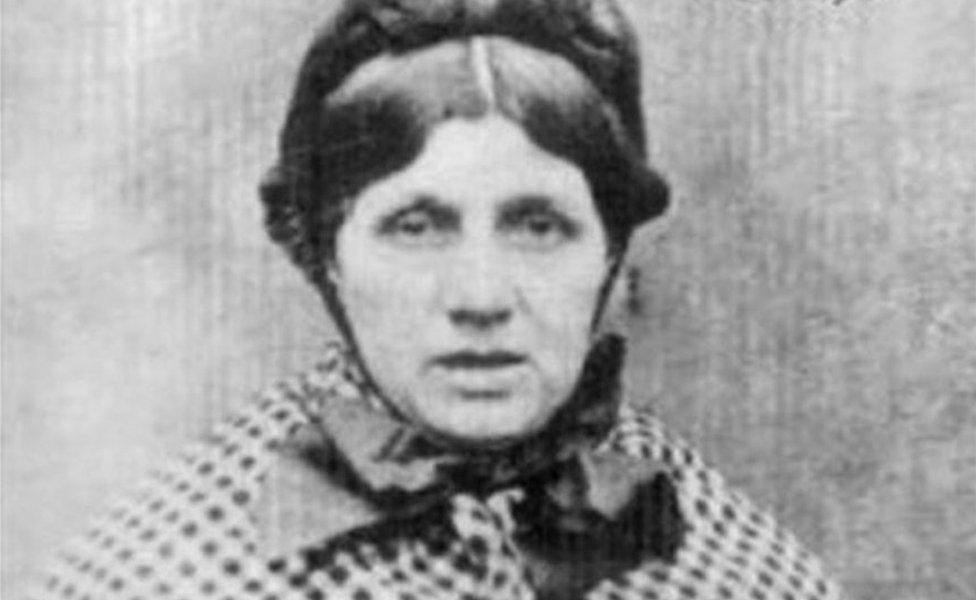
Mary Ann Cotton was hanged in March 1873
Objects reputedly belonging to an infamous Victorian serial killer have gone on display.
Mary Ann Cotton, from West Auckland, County Durham, is widely believed to have killed three husbands, 10 children, a lover and her mother, collecting life insurance for each.
She was hanged in Durham Prison in 1873 for murdering her stepson with arsenic.
Beamish Museum is showing copies of her letters and a teapot in which Cotton is said to have brewed poisoned tea.
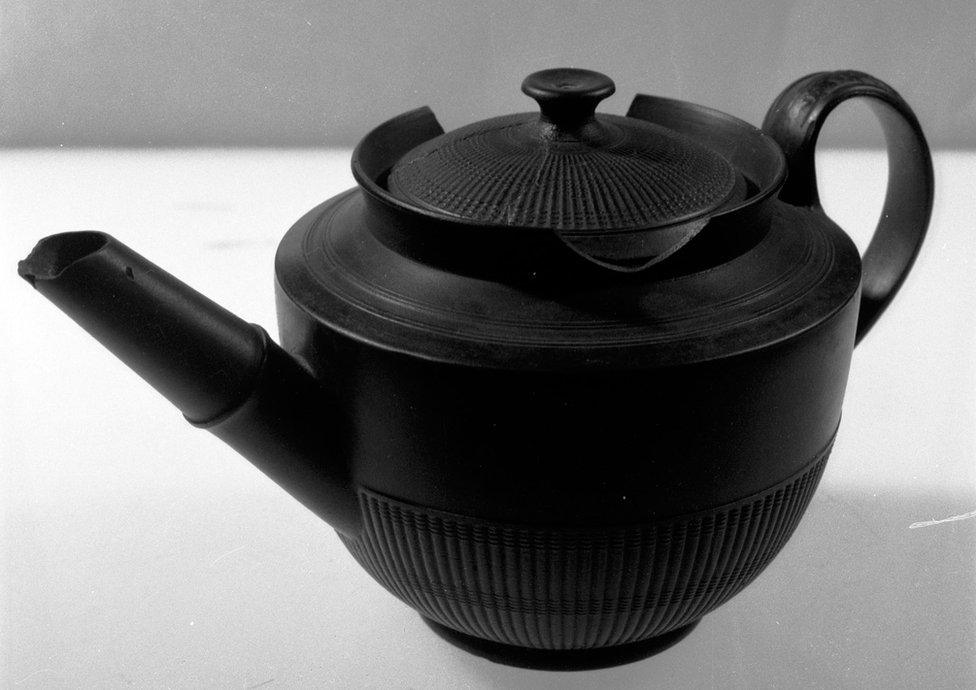
Some scenes from the ITV drama Dark Angel, based on the story of Cotton, were filmed at the museum last October.
Photographs of the television production will also be on display.
For more stories on Victorian England visit our Pinterest page, external
The small, black Wedgwood teapot was donated to Beamish in 1972 but its provenance was unknown until 1989, when the museum received a letter from the daughter of the donor.
It revealed the GP who donated it had inherited it - via his step-mother - from his step-grandmother, who had reportedly been given the teapot by Cotton.
The County Durham museum said he had "never felt comfortable with ownership of the macabre relic and was persuaded by his family to send it to Beamish".
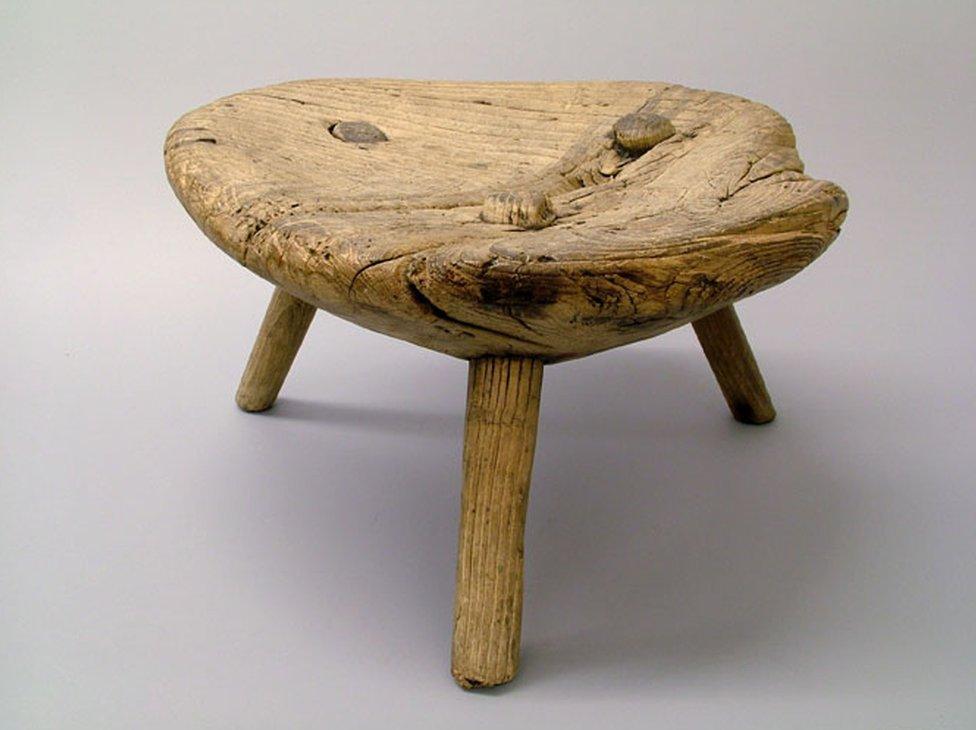
Also on show is a stool which is believed to have belonged to Cotton while she waited for her trial in Durham Jail.
A number of photocopies of letters have also been sent to the museum anonymously.
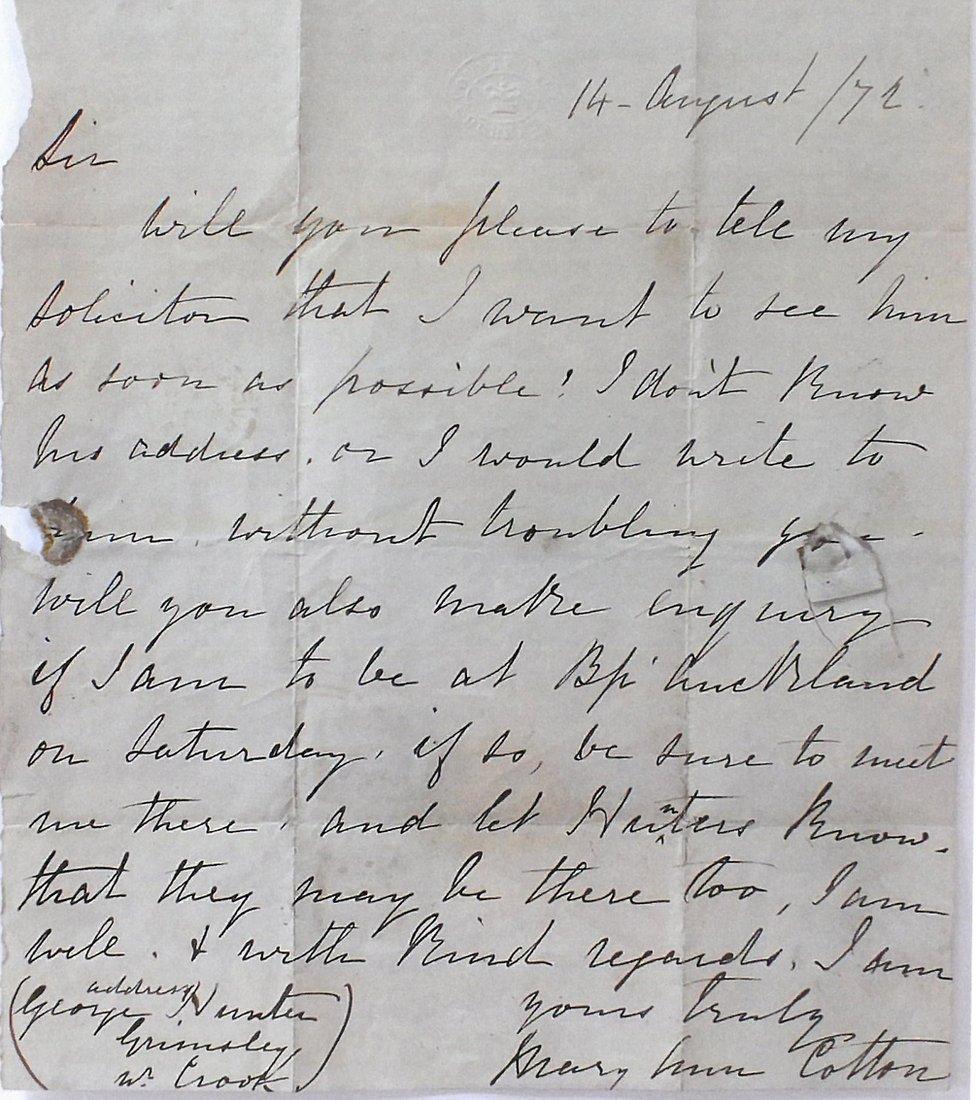
The museum said they had been sold to a dealer by a North Yorkshire auction house in 2013 and their present owner had bought them online, though it was unclear where they were in the intervening years.
Another batch of Cotton's letters found in her prison cell sold for £1,050 in September.
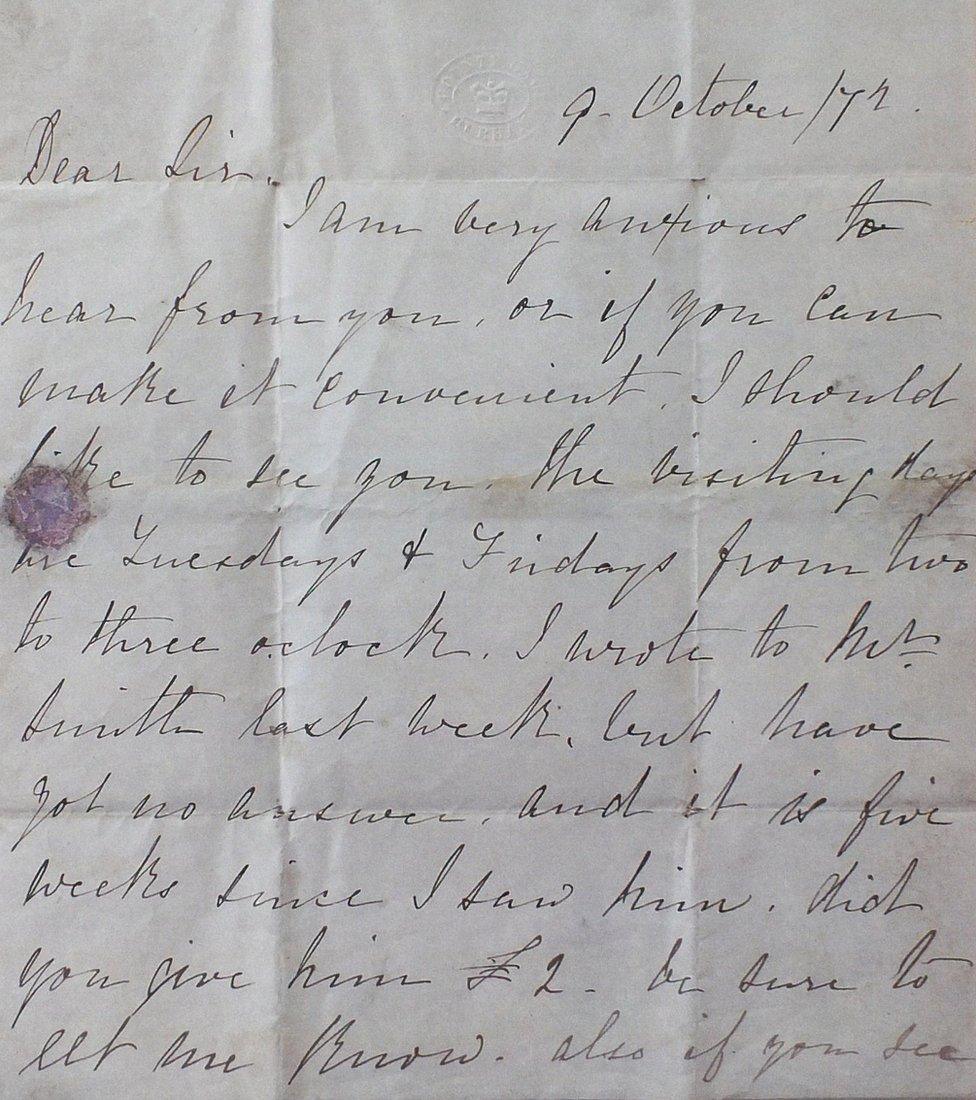
- Published21 September 2016
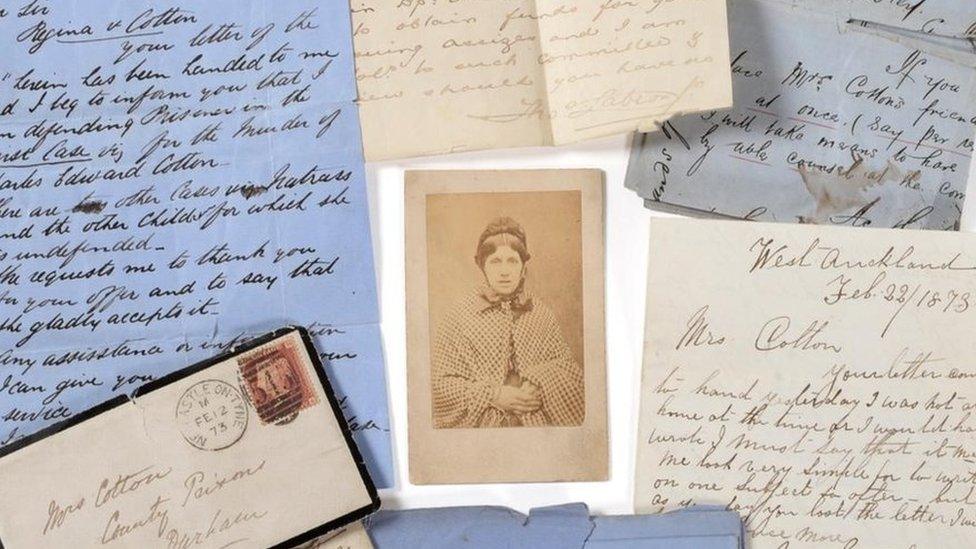
- Published12 March 2014
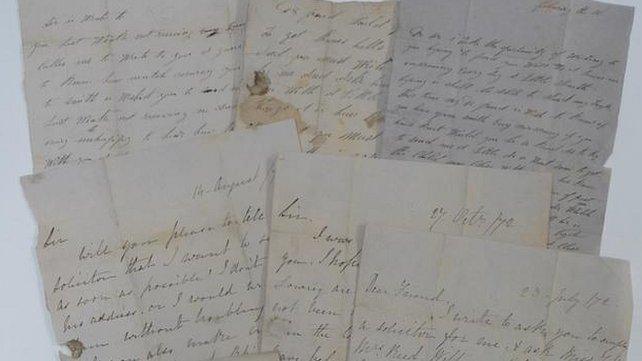
- Published18 October 2013
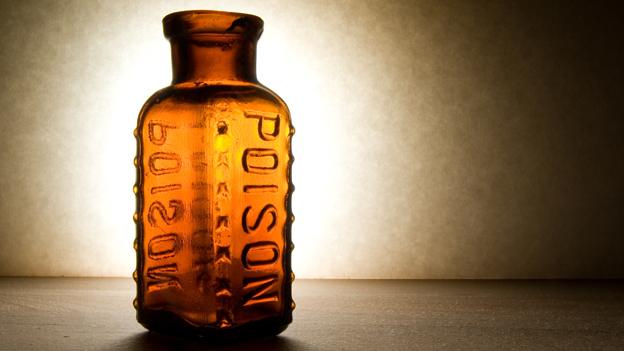
- Published27 February 2013
